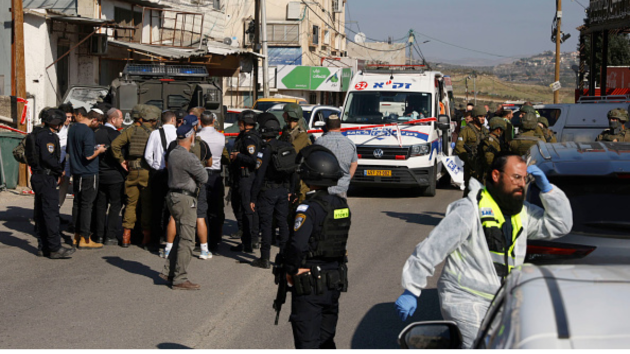Rafah crossing: What is happening at the Egypt-Gaza border?
Written by ABC Audio ALL RIGHTS RESERVED on November 2, 2023
(NEW YORK) — Some people in Gaza have been given clearance to leave for the first time via Egypt’s Rafah border crossing since Oct. 7, when the terrorist group Hamas attacked Israel and Israeli forces later began its retaliation on the Gaza Strip.
At least 8,700 people have been killed and 22,000 have been injured in Gaza, according to the Hamas-run Gaza Health Ministry. At least 1,400 people have died and 4,629 others have been injured in Israel, according to Israeli authorities.
Seventy-six injured Gazan residents have crossed from Gaza into Egypt on Wednesday, hours after the Rafah border crossing opened, according to Palestinian Rafah Crossing spokesman Wael Abu Omar.
At least 335 foreign passport holders — including dual nationals — also crossed from Gaza into Egypt on Wednesday, he added.
Fifty-one aid trucks have crossed into Gaza on Wednesday, according to Omar, bringing the total to 268 trucks that have crossed so far.
Before the reopening
Thousands of people sought refuge at the Rafah crossing as Israeli retaliatory airstrikes pummeled Gaza, intensifying the humanitarian crisis there. Tons of aid awaited entry on the other side.
Egypt was preparing for an opening of the Rafah border crossing when the gate was hit at least four times by Israeli airstrikes, according to Egyptian Minister of Foreign Affairs Sameh Hassan Shoukry in an Oct. 17 statement.
Countries involved in the conflict have continued to point fingers as to who is responsible for keeping out aid and keeping the crossing closed for passage for so long.
Egypt has accused Israel of “deliberately” delaying the delivery of aid into Gaza and called for international protection of convoys from Israel’s bombardment, the head of Egypt’s State Information Service Diaa Rashwan told reporters in Rafah on Oct. 31.
Rashwan also said Egypt is ready to send “not hundreds, but thousands of trucks daily” into Gaza through the Rafah border if it wasn’t for the Israeli side’s restrictions. He blamed “deliberately slow” inspection measures by Israel.
He called for international protection for aid convoys saying Israel could use the “destructive, brutal force” seen in the siege on Gaza against aid trucks.
Israel and the U.S. have placed the blame on Egypt and Hamas for the stalling negotiations. In the weeks prior to the reopening, U.S. officials said they were working to get Egypt to agree to open border crossing for a limited time period across a few days.
And on Oct. 30, State Department spokesperson Matt Miller said Hamas was making “a number of demands before they’ll allow people to leave Gaza.”
Hospitals in the bordering Sinai region and other cities have been placed on alert to deal with the situation in Gaza, the Egyptian Health Ministry said on Oct. 16, and the health minister visited the border area to inspect emergency health measures there.
Relief supplies sent from international aid organizations and countries — including Turkey, Jordan and the United Arab Emirates — and more than 100 Egyptian aid trucks had been piling up in the Sinai border region waiting to enter Gaza through the Rafah crossing.
The border crossing has a tumultuous history in the Israeli-Arab conflict throughout the 20th century.
The crossing is located in the Sinai Peninsula, the Egyptian territory that was invaded by Israeli forces in 1967 during the Six-Day War — in which Israel also invaded the West Bank, East Jerusalem, Gaza and the Syrian territory of Golan Heights.
The peninsula was later returned to Egypt, with Israel completing its withdrawal of forces in 1982, following the Camp David Accords and other negotiations.
The movement of people from Gaza to Egypt at the Rafah crossing was controlled by Israel until it relinquished control to Egyptian, Palestinian and European Union authorities in 2005 via the Agreement on Movement and Access, and Agreed Principles for Rafah Crossing.
However, people crossing into Egypt are required to be registered and approved by the government of Israel in advance of their crossing. Israeli forces monitor control over the movement of goods in and out of Gaza through the crossing.
The U.S. State Department’s Bureau of Consular Affairs said the situation at the Rafah crossing “will remain fluid and unpredictable.”
“It is unclear whether, or for how long, travelers will be permitted to transit the crossing,” the agency said in an Oct. 16 security alert. “There may be very little notice if the crossing opens and it may only open for a limited time.”
Egyptian President Abdel Fattah El-Sisi spoke with President Joe Biden on Oct. 16.
The two agreed on the importance of “protecting civilians and delivering humanitarian aid to the Gaza Strip,” a statement from the Egyptian presidency said.
Copyright © 2023, ABC Audio. All rights reserved.






